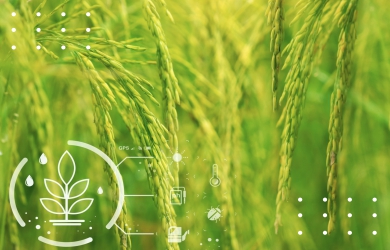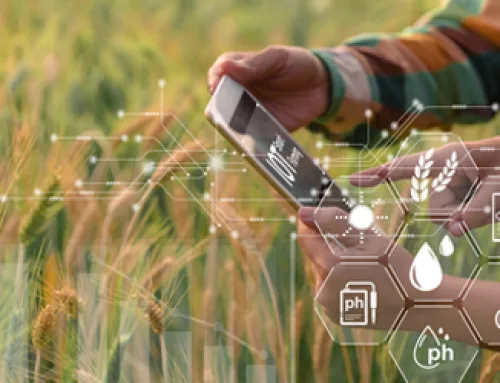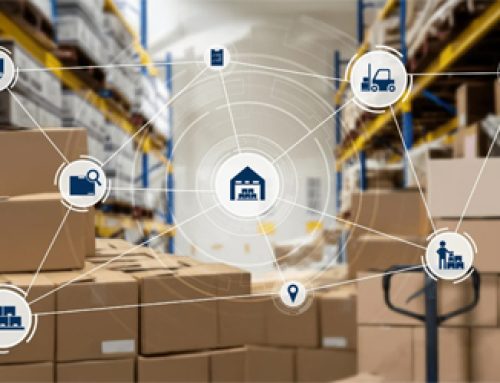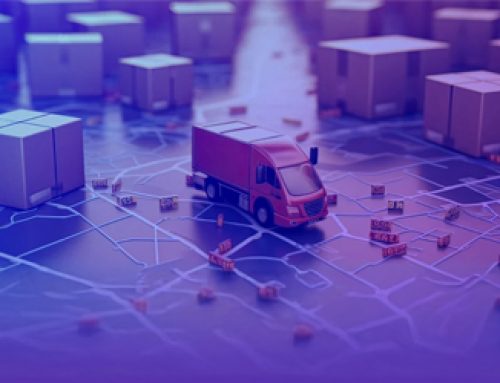The Rise of Modern Farm Management as a Sustainability Solution
In recent times, the two key drivers of food demand – population and income (especially in developing countries) – have been on the rise. People strongly rely on farming for food, fibre, and livestock forage. As the population grows, the demand increases with a threat of resource shortage.
How do we feed the growing and more affluent consumers without the environmental collateral damage? This goal cannot be achieved through highly conventional industrial and damaging farming practices. Moreover, these practices have led to soil degradation and environmental pollution which impair the health of many people.
Today, the agriculture industry as a whole is facing huge challenges due to the scarcity of arable lands, shortage of labour, rising costs of supplies, and climate change. It is expected to significantly affect global water resources and ecosystems, consequently impacting agriculture production and the food processing sector.
These factors call for a smarter approach to farming such as modern farm management and advanced farming methods for long-term sustainability.
Three Main Components of Sustainable Agriculture
The concept of sustainable agriculture fosters balanced and continuous food production with sufficient environmental resources in the future. The three primary objectives of sustainable agriculture are a healthy environment, economic profitability, and social and economic equity. It also focuses on ensuring soil fertility, encouraging biodiversity, consuming less non-renewable resources, preventing pollution, and improving the ecological conditions, while raising environmental awareness and responsibility of the population.
How are Modern Farming Methods Sustainable?
Over the past century, the way of farming has completely transformed. Tractors and mechanical equipment have replaced manual processes such as sowing seeds by hand and back-breaking harvests. Farming techniques such as crop protection, selective livestock breeding, and artificial fertilizers have helped farmers meet demands.
As new agricultural challenges intensify, there is increasing recognition from agricultural corporations that technology is a necessity for cultivation. Agritech and smart farming techniques ensure a much more efficient process, from soil sampling and seeding to irrigation.
With the right technology and modern farm management tools, land that was once considered ‘difficult to farm’ can also be developed into a healthy, operational farm. Today, producing everything from vegetables and livestock is a data-driven, scientific process with substantial gains and sustainability practices involved.
Precision agriculture, one of the most widely adopted technological advancements in agriculture, is the modern solution to sustainability. Every input matters in precision agriculture, enabling farmers to witness higher yields, better soil health, resource management, and improved environmental impact.
Five Modern Farm Management Tools to Achieve Sustainability Goals
Today, the impact of agritech on food production is undeniable. New technologies and advanced farming methods are continuously being developed to solve modern farm management problems and achieve sustainability.
- GPS – The Primary Tool for Precision Agriculture
Most modern farm machinery and equipment are equipped with GPS to collect data on crops and soil to optimize inputs such as water, fertilizers, etc. based on specific conditions. This helps farmers with more precise inputs and enables them to make effective use of resources, thus reducing waste and saving operational costs. GPS further helps monitor and respond to variability in factors such as moisture levels in real-time and improves crop growth.
- Farm Management Software Emerges as a One-stop Solution
The modern farm is home to some of the most advanced agricultural technologies. However, to keep a track of everything happening on and around a farm, farmers use farm management software. It uses data analytics to process and analyze a vast amount of data collected through modern farming tools and equipment to improve crop maintenance and lower environmental impact.
- Automated Farm Machinery and Robots for Task Automation
For years, farmers have been using GPS for everything, from field mapping to farm planning. However, the latest tractors and other farm equipment can function completely autonomously. Owing to these advancements, farmers can drastically work hours, manage their fields better and more efficiently, increase profit margins, and move a step closer to their sustainability goals.
Drones and agribots are also becoming more accessible to farmers. These devices are designed to ensure the precise use of resources such as water and fertilizers in specific areas or to particular plants. Moreover, agribots move between individual plants and make independent micro-decisions that help maximize yield while minimizing waste.
- Artificial Intelligence and Blockchain Bring Huge Advantages
The rise of digital technologies such as AI and blockchain has opened a wealth of new opportunities in sustainable agriculture. Based on statistical data gathered through remote sensors, satellites, drones, or UAVs, AI or machine learning algorithms interpret a field’s environment, process the data, adapt, learn, and consequently produce a range of outcomes. Farmers can use these outcome predictions to make better decisions in the field and achieve their goal of a better harvest and sustainability.
Blockchain in agriculture is also making headway in food traceability and food safety practices. The technology’s capability of tracking ownership records can be used to solve critical issues such as food fraud, supply chain inefficiency, and food traceability in the current food system, thus reducing food waste and mitigating the concerns of food insecurity.
- Smart Sensors and Big Data Equal a Win for Farmers
Smart agriculture sensors represent a part of modern farm management and an ever-increasing number of advanced farming tools such as autonomous tractors, smart irrigation systems, drones, agribots, and handheld devices. These sensors gather a wide range of information, from soil health and crop growth to weather patterns, and help farmers make informed decisions in real time.
Using big data algorithms, farms are expected to generate an enormous volume of data in the future to gain in-depth insights to drive decision-making for both improved crop productivity and sustainable agriculture. Big data can advise farmers on what crops to grow where; what interventions are required; and the ideal time to harvest.
If these technologies are the key to the future of sustainable agriculture, growers will continue to seek better ways to embrace innovation and produce more crops. FarmERP provides a wide range of modern farm management solutions to help you stay ahead of the curve. Contact us today to know more.



